Melatonin and its effect on gut and brain health is an emerging, and highly important, field of research. The effect that the natural hormone ‘melatonin’ has on our body, could prove to have many health benefits from determining what we feel like eating, to how we feel emotionally. Because the gut and brain are so closely linked, it makes sense that this hormone plays a significant role in our overall well-being.
So let’s take a look at the effect melatonin has on the body and how this can affect how we feel, sleep, what we choose to eat, our gut, our stress levels, inflammation in the body, and how all this can impact our daily lives.

For a super quick understanding of melatonin, check out this 2-minute video clip.
Emotions & the gut
Melatonin plays a role in the gut and the gut is closely associated with the brain via the gut-brain axis. If we have a calm and more relaxed gut, it’s thought that it will be better able to produce the hormone melatonin.
It can be really hard to stay on track when we’re faced with stress in our lives. But looking after our gut during these times, not only helps our body cope with stress, it helps our brain. This ‘effect’ can then determine what we then choose to eat, do and think. These actions then have a knock-on effect on the brain and you see where I’m going with this – round in a circle!
The times when we are under the most stress, are the times we need to be extra vigilant in looking after ourselves so our body can do the job it’s supposed to. Everything is interconnected.
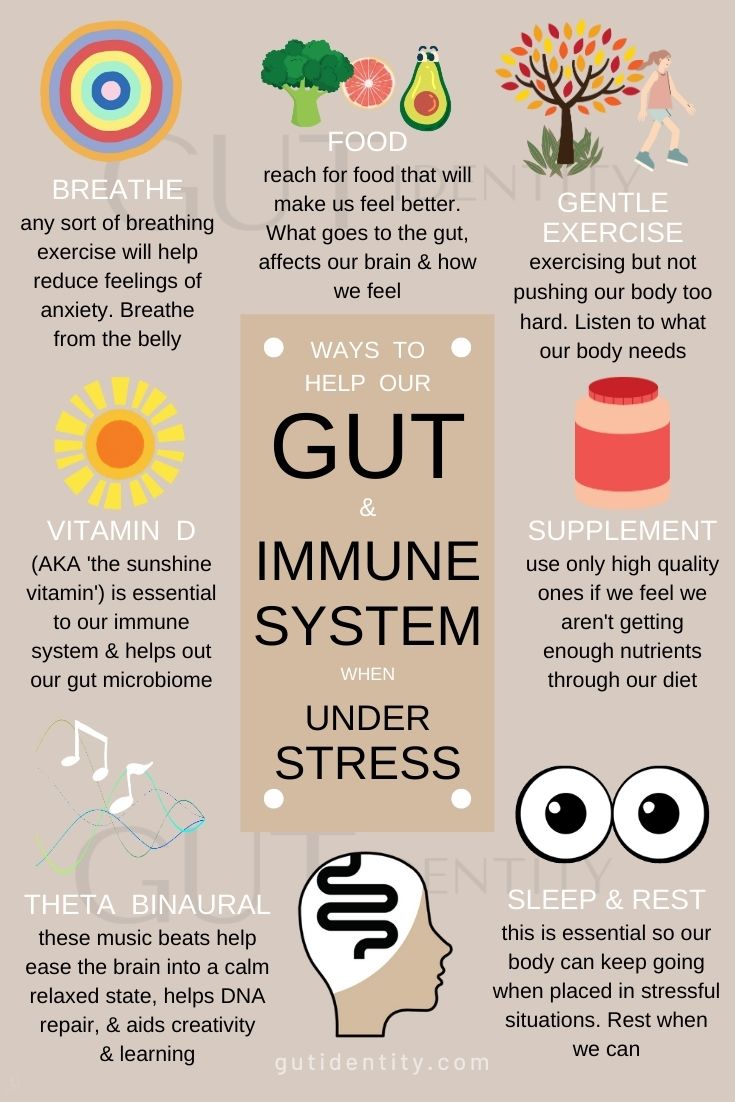
Insulin Sensitivity & Weight Control
Melatonin disruption may play a part in the development of type 2 diabetes because of its role in our circadian rhythm which helps us sleep. Melatonin production helps regulate glucose and energy balance within our body. If this is not disrupted, and melatonin production can occur without a problem, it can result in less storage of body fat. This in return gives us less of a chance to progress towards obesity.
Obesity is a risk factor of type 2 diabetes which of course is going to have more of an impact on the production of melatonin. This can start a cycle of unwanted weight AND disruption to the important hormone melatonin.
“Evidence from experimental studies proved that melatonin induces production of insulin growth factor and promotes insulin receptor tyrosine phosphorylation. The disturbance of the internal circadian system induces glucose intolerance and insulin resistance”
Credit – The role of melatonin in diabetes: therapeutic implications (2015)
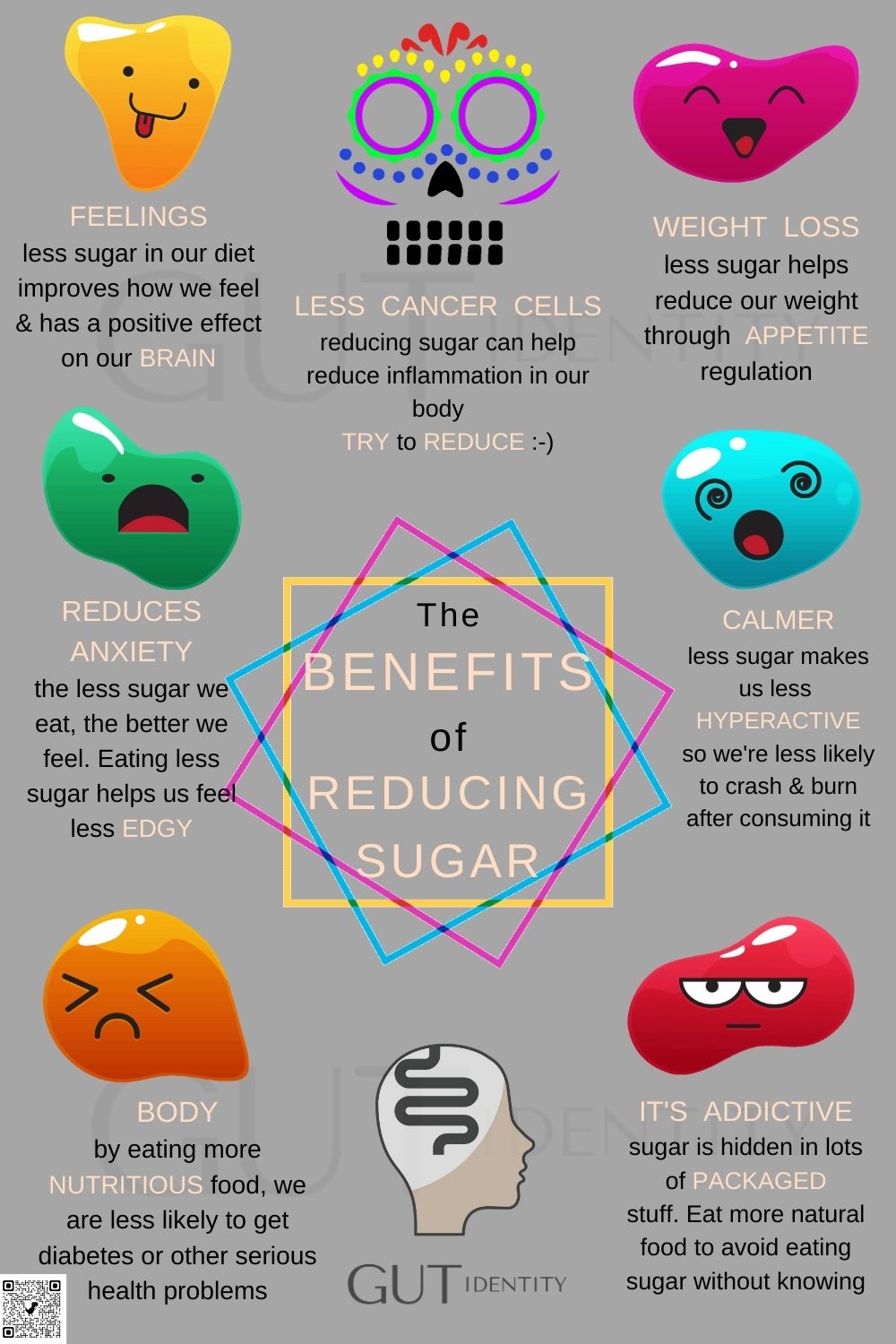
Aging, melatonin & our gut & brain
Put this all together and it’s no wonder we age like we do. If we don’t get enough rest or sleep, the aging process is, of course, going to accelerate at a faster rate than it should.
Find out more about melatonin in the body by watching this short clip below. It explains how melatonin has a massive effect on the whole body and how certain pharmaceuticals affect the production of melatonin.
Melatonin & its Effect on Reproduction – a ‘Relationship’ worth questioning
Researchers have been investigating whether there is a relationship between melatonin production and reproduction. In other words, does melatonin play a role in whether we can conceive or not. And what part does stress play in it? If we break it down, even to just a ‘stress’ factor, if someone is experiencing stress, they are more likely to experience sleep difficulties, therefore this could result in a disruption to the production of melatonin.
If we look at it from a solely behavioural perspective, if a female is experiencing stress, the production of the stress hormone ‘cortisol’ may disrupt things even further. Either way, more research is needed to investigate what role melatonin plays in the circadian rhythm, how it interacts with stress, and how this impacts the female reproductive cycle. Can all of this be attributed to a disrupted gut?

IBS
The hormone melatonin has also been considered as a form of treatment for individuals who suffer from IBS (Irritable Bowel Syndrome). This study looks at treating the symptoms of IBS using melatonin as it can have a sort of ‘calming’ effect on the bowel.
The following image, taken from ‘The World Journal of Gastroenterology’, shows the connection between the gut and the brain and how it can play a role in IBS. It’s a complex highway that plays a large role in connecting both the brain and the gut in ways that we don’t even realise.
The Gut-Brain-Axis

CREDIT — World J Gastroenterol. Sep 28, 2017; 23(36): 6593-6627
To read more about helping our gut and immune system out while under stress, click the heart below. Sleep and rest, play a massive part in our wellness so it’s important to keep trying different strategies until we find something that works for us.
HELPING OUR GUT AND IMMUNE SYSTEM WHEN UNDER STRESS
Sleep
I’ve had problems with sleep for as long as I can remember. I’ve tried every trick in the book and now stick to an extremely strict evening routine. A big part of this is not looking at any screens at least two hours before I go to sleep. This is because it messes up our circadian rhythm which is our natural internal clock that helps us with sleeping and waking at the right times. If we look at screens or bright lights before sleep, our body thinks it’s time to get up, not go to sleep.
If I have to look at the screen, it is dimmed to the lowest light setting and all apps are in dark mode. This is because the blue light used in these mobile devices can disrupt our production of melatonin signalling to the brain that it’s time to wake up, not sleep. Blue light also has a massive impact on our well-being so for me, I think it’s worth reducing my exposure.
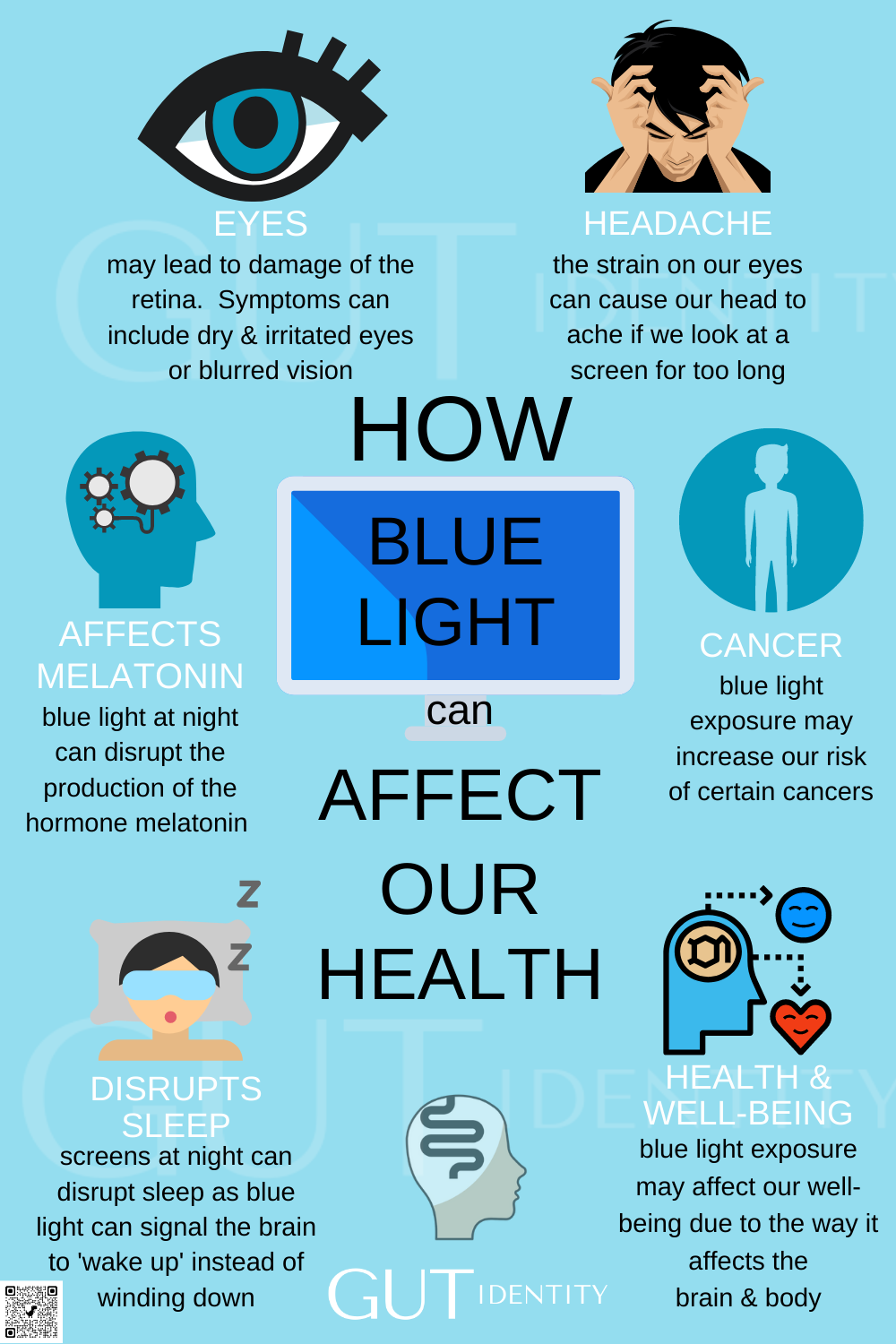
If you want to develop some good habits to do in the evening that will help (not hinder) your production of melatonin, check out the infographic below. It’s important to note though, that I built these habits up over a period of time and didn’t try them all at once. It’s a process that can be built on gradually where we just have to do what’s available or suitable to us in our own environment and situation.
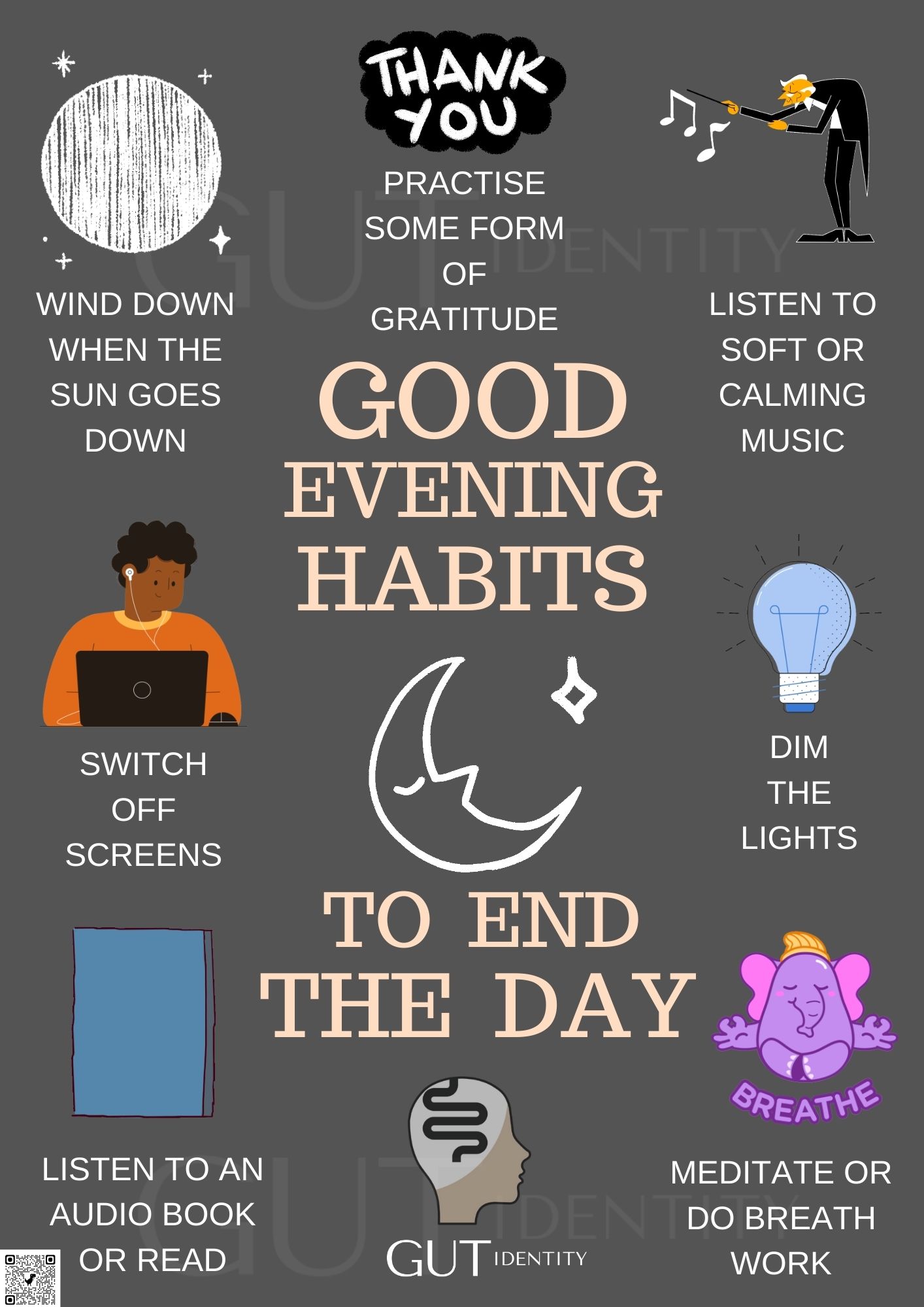
Melatonin & Immune SYSTEM Support
It’s now known that the gut has at least 400 times more melatonin than the pineal gland. WOW! That’s a fact that I didn’t know but it’s incredible to think that the majority of our melatonin is produced by our gut.
The gut is very closely linked to the immune system because the majority of the immune system is basically IN the gut. So, if our gut is disrupted by our lifestyle, it would make sense that the production of melatonin would also be disrupted.
“The gut microbiota that resides in the gastrointestinal tract provides essential health benefits to its host, particularly by regulating immune homeostasis. Moreover, it has recently become obvious that alterations of these gut microbial communities can cause immune dysregulation, leading to autoimmune disorders”
CREDIT- Gut Microbes. 2012 Jan 1; 3(1): 4–14.
Makes ya think eh!?!
If we have a munted gut, chances are we’re going to have a munted brain and an immune system that’s not going to function properly. So the opposite is also true. If we have a functional gut, our immune system and our entire body will function the way it should. Our body is always trying to find balance. It’s only our lifestyle choices that get in the way.
Bottom Line
How melatonin interacts with our gut and brain health is an up-and-coming, highly important, area of research. This natural hormone could prove to have many more health benefits that could help us understand why we reach for certain foods, why we feel the way we do, and how we could use this information to improve our overall health and well-being.
We now know that the gut and brain are closely linked, so it makes sense that this hormone plays a more significant role in our overall well-being than once thought.
Further reading & info
The gut-brain axis: interactions between enteric microbiota, central and enteric nervous systems
Distribution, function and physiological role of melatonin in the lower gut
Melatonin and Female Reproduction: An Expanding Universe
The Gut: Where Bacteria and Immune System Meet
6-Page eBook on Good Evening Habits available at Gutidentity on Etsy. Click the image below to go straight to the item.
For resources on health and well-being:


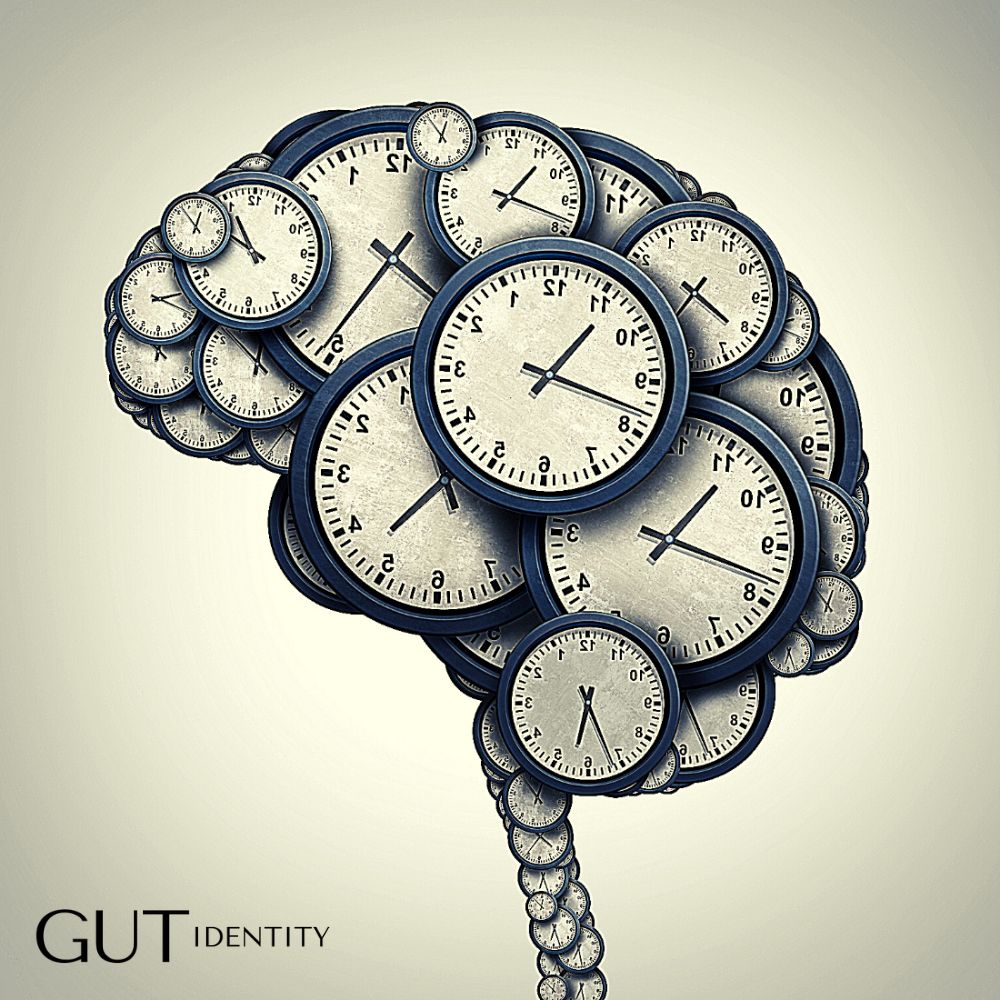














michael
their is 400 times more melatonin made in the gut ,than in the pineal gland. drs. do not believe you.
Emma Bailey
Hi Michael
Thanks for your comment. If you read the blog post carefully you will see the following paragraph and link to the research directly under the heading ‘Melatonin & Immune System Support’
“It’s now known that the gut has at least 400 times more melatonin than the pineal gland. WOW! That’s a fact that I didn’t know but it’s incredible to think that the majority of our melatonin is produced by our gut.”
Perhaps take another read of it and check out the link to the research.
Mary
Escriban los recuadros con dibujos , en español. NO en Inglés.
Emma Bailey
Hola, acabo de empezar a hacer algunos de mis gráficos en Pinterest en español.
Ken
Dang,,, so little talk about the Mel produced in the gut. Touched on the vagus nerve connection but missed the Mel gut to Mel brain connection. Really hoped you’d gone down this rabbit hole.
Wrecked guts. Wrecked Mel production in the gut? Could it be that this is the source of a malfunctioning Mel in the brain? Could sleep be a Mel gut production issue given this is where we most influence our lives… Not the pineal? My feeling is more focus is needed on gut melatonin since this is where we impact it daily via consumption of food/liquids
Given the length of time exogenous Mel holds in the blood stream, could it be that exogenous Mel is actually supporting the gut… more and thereby having better vagus communication (confirmation with gut and brain)
Emma Beynon
Thanks for the feedback. I can certainly write another post about that 🙂